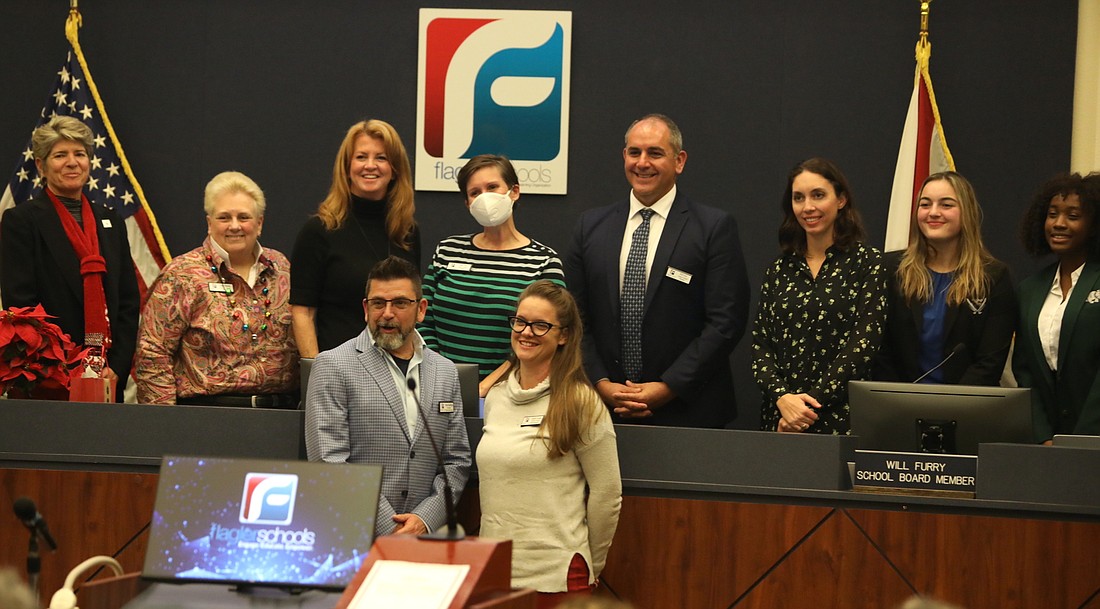- December 15, 2025

The Flagler County School Board is committed to implementing the School Guardian Program. Questions remain on when and how.
At its workshop on Tuesday, Dec. 20, the board directed the school district to create a survey of instructional and non-instructional staff to gauge interest on how many employees would be interested in training as school guardians. Board members would also like to hear from stakeholders on what model of guardian program they would prefer.
The Coach Aaron Feis Guardian Program was created in 2018 in response to the Marjory Stoneman Douglas shooting to train volunteer staff members to carry a weapon to prevent or abate an active assailant incident. State law requires all schools to have a school resource officer or guardian on site.
Flagler's schools already have School Resource Deputies on each campus. The guardians would supplement the SRDs. Unlike the deputies, the guardians would have no law enforcement authority. Guardians are required to complete a minimum of 144 hours of training.
If a School Board opts to implement the guardian program, the Sheriff's Office in that county is required to provide the training. In August, Flagler County Sheriff Rick Staly told the board that his office will provide guardian training only if the guardian program is to supplement the SRDs, not replace them.
Guardian grant funding covering training and equipment is available to sheriff departments. However, next year's grants won't be available for training held before July 1, 2023, which would be too late to start the program at the beginning of next school year.
Flagler Schools Safety Specialist Tom Wooleyhan was directed to check on possible timelines.
The two types of guardian programs would be training current employees at the schools or hiring new employees specifically to be guardians. The former would be the more inexpensive option.
The state provides an allocation for the School Resource Officer Program. In 2022, the district was allocated
$1,004,159. The district used $944,064 to fund the the School Resource Deputy Program and the Crossing Guard Program with the Flagler County Sheriff's Office.
The Board will have to decide on qualifications for the guardians, such as whether prospects would have to have previous law enforcement or military training, Superintendent Cathy Mittelstadt said.
There are 20 districts in the state that currently used guardians to supplement their school resource officers. School Board member Colleen Conklin asked the district to check on the models that those districts use.
The new School Board has come to the same conclusion concerning the Belle Terre Swim and Racquet Club as the old School Board: the business model isn't very good.
Joshua Walker, the district's coordinator for community services, informed the board that the Swim and Racquet Club's projected operating loss for 2022-23 is $169,847. The profits from the district's extended day program are floating the facility, said Patty Wormeck, the district's chief financial officer.
The deficit doesn't even take into consideration capital expenses on the horizon for the 44-year-old facility, Dave Freeman, the district's chief of operations, said.
Board member Will Furry noted that an opportunity to make more money at the club is to renegotiate with health insurance companies who pay the district to provide use of the facilities for their members.
Revenue from the club's 90 members plus daily use fees will total $21,018 this year. Revenue from insurance companies total 29,829 with the companies paying between $12 and $46 per member. The School District has increased club membership to $47 a month or $300 a year for adults.
A total of 713 insurance members have signed up with the club, but that does not mean that that many have used the facility or use it with any regularity.
Furry said the district might be able to get more money from insurance companies because the facility has a pool in addition to a gym.
Flagler Palm Coast High School's swim team and two clubs that include Flagler County students use the pool. Furry and board member Sally Hunt questioned whether students get enough benefit from the facility to justify annual deficits.
"We need more revenue," Furry said. "Whether it's through membership, through additional services, whether we bring on somebody to lease it — I know that's been proposed, I don't know the level of interest there — but we need more revenue or we need to justify the loss as an educational benefit, as an investment rather than a loss, right? But based on what I have in front of me today, I'm not seeing it. But I think there is an opportunity to close this gap. But it's going to take some tweaking."